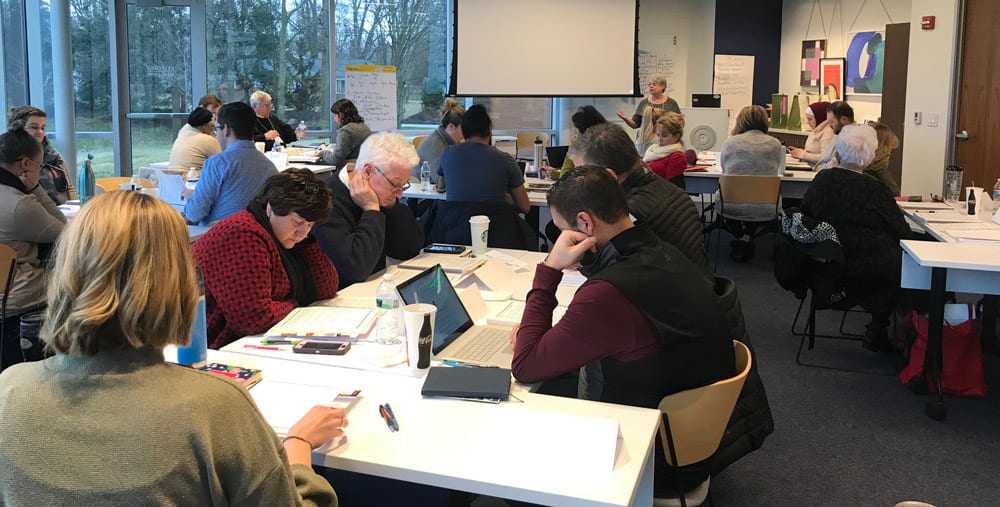
By Kristi Howard-Shultz
I recently took the online course Capital Campaigns: What do I do now? The title alone was intriguing. It’s something, as a professional fundraiser, I’m asking myself every day and you may be too!
To answer this question, dean emeritus of the Lilly Family School of Philanthropy and long-time fundraiser Dr. Gene Tempel shared his expertise on capital campaigns and how pandemics affect charitable giving. It was a great session and I left determined and encouraged with the following takeaways:
The environment is new.

There is no doubt that we are in a volatile economic environment. The magnitude of this crisis has grown from curbing the spread of COVID-19 to damaging the economy in unprecedented ways. Donors may be giving less and we may not be able to meet face to face for many more months. While we have been through economic downturns and national tragedies before, we have never been through a pandemic and downturn quite like this.
Crises like September 11, 2001 gave us some guidance. Many organizations during that time found that their donors needed about two months to process the tragedy and reconnect to their previous giving priorities. COVID 19 is a bit different. This crisis has gone on for many months, is worldwide, and there appears to be no end in sight. In other words, waiting two months is relative. Your approach and timing with donors may be a bit different, but the fundamentals of developing relationships and running the campaign are not.
The fundamentals are not.
Even mid-pandemic, you will still follow the typical guiding campaign principles: sequential solicitation, volunteer involvement, focus on quality over quantity. Relationships still rule. Ultimately, our visits during the campaign still contain these essential aspects: 1) expressing empathy to donors and prospects, as well as all our constituents, 2) explaining the need, answering questions, and telling the truth, and 3) letting the donor lead. Leave your meetings asking things like, “How would you like to proceed?” “When should I check back in?” “Transparency builds trust!”
The timeline may be extended.
The biggest adjustment in the timeline may be in the planning phase. Even though solicitation may happen later than you originally planned, you can use extended planning to reach out to current and prospective donors. Let them know you’re thinking about them, gather their feedback and concerns, and share plans for the campaign.
This is also the time for organizations to review options. If a facility is planned, can construction be delayed? If construction has begun, how will the organization fund it until the campaign is completed? You may need to adjust campaign and building priorities for a post-pandemic world.
What do you need to include now that you didn’t before? What needs to be changed or even excluded? Were you planning space for in-person programming that you now realize can successfully be done remotely? Maybe you need more or different technology? Don’t be afraid to iterate.
Offer flexible pledge payments. Now, more than ever, nonprofits need to listen carefully and communicate regularly with donors. Some donors may need to suspend their pledges or work out an extended pledge period. Some may have been planning to make gifts from appreciated assets or stock options and ask to postpone their gift until a time when their assets recover from the downturn.
Delay the public phase. Research shows, from the experience of the Great Recession, that donors making smaller gifts are among the first to stop giving. If your campaign is near the end and soliciting general gifts, that might cause your campaign to stall. It’s not too late for the campaign cabinet and the board to consider alternative strategies.
Take heart!
Whether you are doing a project or comprehensive campaign, or anywhere in between … your cause is worthy. Your case is solid. Go forth and raise!
Kristi Howard Shultz, founder of Kristi Howard-Shultz Consulting, is a a nonprofit executive that leads with head and heart. With 20+ years of experience working for nonprofits including nationally-known, time-tested institutions like Scouts BSA (formerly The Boy Scouts of America), Big Brothers Big Sisters, and Boys & Girls Clubs, she has worked in nearly every capacity of fundraising throughout her career. She has a proven track record of success in board and fund development, campaign management, and capacity building. She has built a strong reputation within the community and is sought after for her industry expertise and thought leadership. Kristi is a natural relationship builder who loves to put plans into action. Championing “firsts” for organizations is her specialty.







